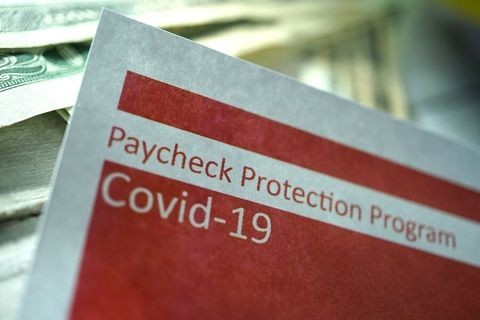Sustainability:100 percent ethical sourcing? Zero emissions? Recyclable? Class action plaintiffs beg to differ copy
Publication | 01.15.25
Expect the recent surge in class actions challenging sustainability claims made by consumer goods companies to continue in the year ahead, says Crowell & Moring partner Jason Stiehl, who is a member of the firm’s Litigation and Advertising and Brand Protection groups.
Several of the country’s biggest brands were hit in 2024 with lawsuits asserting they misled consumers about their products’ social and environmental impacts.
Fashion brands in particular have been targeted by “greenwashing” suits claiming their efforts to reduce carbon emissions, use more environmentally friendly materials, or even launch recycling programs for their products fell well short of what they promised in marketing campaigns. Especially with the advent of mandatory climate disclosure rules in the EU, the UK, and, most recently, in the U.S., those types of claims are increasingly vulnerable to public scrutiny, says Stiehl.

Given recent government attention to [stated sustainability targets], it would not be surprising to see those claims challenged by the plaintiffs’ bar.
— Jason Stiehl
Can Anything Be ‘100 Percent’?
Also last year, several large companies were hit with class action suits related to “100 percent ethical sourcing” claims, promoting their commitment to buying from suppliers who abide by certain human rights and labor standards. Especially in industries that source farm-grown ingredients from around the world, those claims can be difficult to support, says Stiehl. “In today’s global supply chain, it’s often difficult to trace and confirm each link in the chain, making a claim of 100 percent a risky proposition,” he says. Ambiguous words such as “ethical” should also be avoided if possible. “Without a clear definition, this has become a hotbed for complaints,” he notes.
Sustainability suits are likely to expand in scope in the year ahead, with plaintiffs’ attorneys taking their cues from elected officials and government regulators, says Stiehl. For example, New York Attorney General Letitia James recently filed suit against JBS USA, the American subsidiary of the world’s largest producer of beef products, for allegedly “misleading the public about its environmental impact.” Citing public statements going as far back as 2015, James said the company had “claimed it would achieve net zero greenhouse gas emissions by 2040, despite documented plans to increase production and its carbon footprint.”
Stiehl says it is likely that James’ suit will bring follow-on consumer class action suits, not just against JBS but also other companies that have made public statements about environmental and social goals. Those statements could come not just in the form of ad campaigns and product labels but even through financial reports such as 10-Ks.
“About five years ago, it was in vogue to publicly set very ambitious sustainability targets. Given recent government attention to these statements, it would not be surprising to see those claims challenged by the plaintiffs’ bar,” he says.
Green Guide Updates
Stiehl says marketers and plaintiffs’ lawyers alike will also be watching for a long-anticipated Federal Trade Commission update on its Green Guides, further clarifying standards for claiming a product is “recyclable.”
A slew of class actions have been filed over the past several years by both environmental organizations and private individuals, asserting that “recyclable” labeling on everything from plastic water bottles to foam cups is “false and deceptive.” Those claims are bolstered by a dramatic softening in the recycling market as well as a 2022 report by Greenpeace stating that only 9 percent of plastics actually gets recycled in the U.S.
During the Green Guides revision process, the agency has invited public comment on the guides’ current definition of “recyclable,” which focuses on local access to recycling programs. Depending on changes the FTC makes, retailers could face tougher substantiation requirements or need to make recycling disclaimers on packaging.
While the Green Guides are not legally binding, they do provide insight into areas where the agency will be focusing its enforcement activities. “Whatever the agency focuses on, consumer class action suits typically follow,” says Stiehl.
To read more from Litigation Forecast 2025: What Corporate Counsel Need to Know for the Coming Year, visit here.
Contacts
Insights
Publication | 03.31.25
Health System Settles FCA Case Over PPP Loan 03.31.25 Report on Medicare Compliance
Publication | 03.24.25



